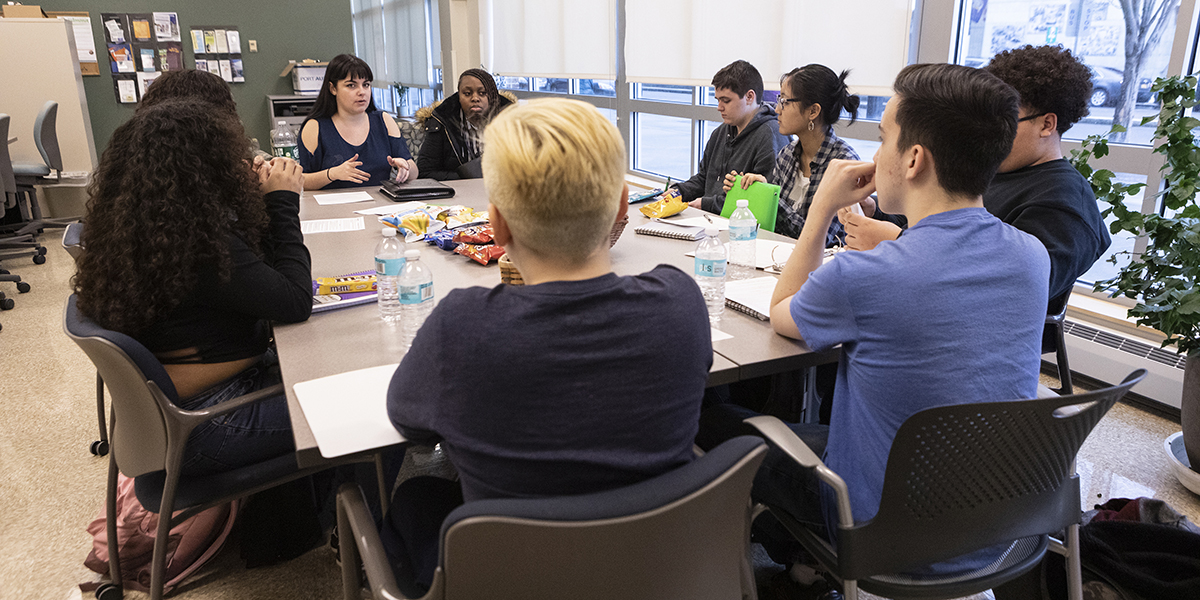Changing Futures, Transforming Communities
CCPA’s Nationally Acclaimed Community Schools Model

In 2009, Luann Kida, a University of Binghamton social work faculty member, started knocking on trailer park doors in the distressed Whitney Point, NY School District. Her objective—launching a University-Assisted Community Schools pilot project—was no small feat. A multitude of barriers stood in the way, from parents who had themselves not graduated high school to administrators out of touch with families and their challenges. Binghamton faculty and staff made gradual inroads, uniting communities in the vision of better outcomes and futures for their children.
Today Binghamton University Community Schools (BUCS) has become a national leader, known for high-quality programming, in the Community Schools movement. From free meals and clothing to onsite mental health services, tutoring, and caregiver support groups, BUCS works with schools and districts to facilitate whatever is needed and meet communities where they are.
Binghamton is nationally known for focusing on non-urban districts and stands alone in working with community schools at the school, district, regional, and state level. The level of Binghamton student engagement is unprecedented; nearly 500 students across all schools are part of this College of Community and Public Affairs (CCPA) model. Harpur students provide homework help. Decker students educate parents about diabetes. Future Watson-educated engineers streamline school business offices.
BUCS has had a measurable impact, with steady increases in attendance, graduation rates and average high school English grades.
“This model can change communities,” points out CCPA Dean Laura Bronstein, “once you have most students graduating, being successful and going on to college and career, you lift entire families out of intergenerational poverty.”
Philanthropy must play a role to sustain and grow community transformation. Currently, most BUCS funding is grant-based, but as Dean Bronstein explains, “Now we really want to add donor support, so we can determine where we need to go and how to get there.”
To have a conversation about investing in Binghamton’s high-impact Community Schools work, please contact Rebecca Benner, Associate VP for Advancement and Campaign Director, rbenner@binghamton.edu.

